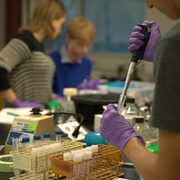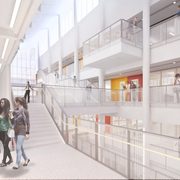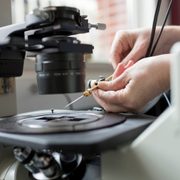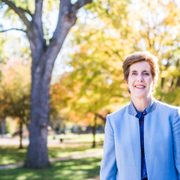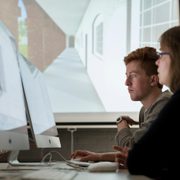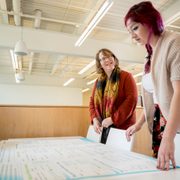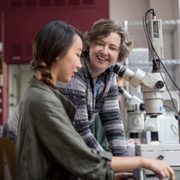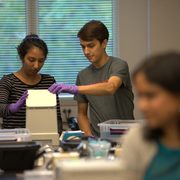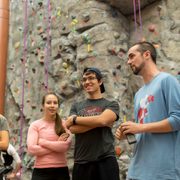-
Among liberal arts colleges, Carleton’s science programs stand out in seven key ways.
-
Carleton’s new science complex will invite everyone in, putting research front and center.
-
Brooks Wallin ’78 is passionate about discovery and innovation. He embraces it every day in his role as president of Organic Stories SAS, a Paris-based manufacturer and marketer of organic food products.
-
It’s a testament to Carleton’s liberal arts mission that two of the most generous alumni donors to science education are an English major and a history major.
-
Even in advance of the new science facility, Carleton faculty members have been forging innovative partnerships between STEM and other disciplines.
-
Carleton ensures that STEM students from traditionally underrepresented backgrounds can succeed.
-
The science complex will house the Mark Williams ’73 Physics Lab, in honor of a leading voice for science education.
-
On the first day of fall term, Professor Jennifer Wolff stood in front of her Introduction to Biology class and showed an innocuous slide of her research with microscopic worms. “You won’t know what all of this means yet,” she told them, “but it’s the kind of work I specialize in.”
-
Distinguished scientists plan a legacy of stellar support
-
Your generosity can transform science education at Carleton.
-
Physics and fitness became workout buddies last fall in first-year seminar The Physics of Phitness, taught by Frank McNally ’09, visiting assistant professor of physics and astronomy.
Carleton has enjoyed a reputation as a science powerhouse for decades. The STEM — science, technology, engineering, and mathematics — fields are among the most popular academic disciplines at Carleton, and unlike many other institutions, Carleton’s STEM majors attract high numbers of women as well as men. In 2016, three of the college’s top five majors were STEM subjects: biology first with 55 graduates, computer science third with 51, and mathematics fifth with 34. In this issue, we explore Carleton's historic strength in the sciences and get a sneak preview of the future: a revolutionary new science complex that will integrate scientific disciplines and support more collaborative learning.

